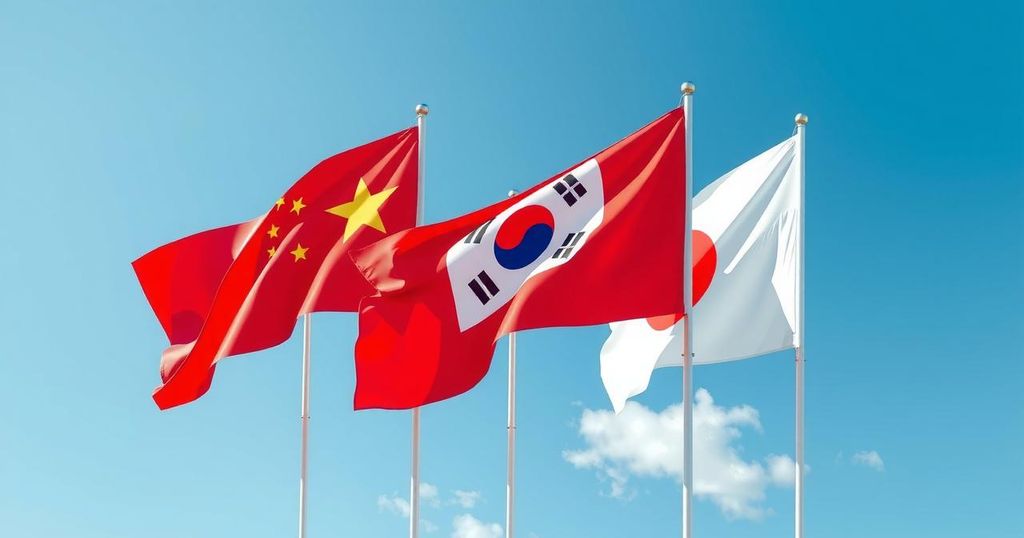Politics
AFRICA, ASIA, ATLANTIC OCEAN, BID, CHINA, DEMOCRATIC REPUBLIC OF CONGO, DEPARTMENT OF STATE, ENERGY, ENERGY TRANSITION, GROUP OF SEVEN, HE, HELAINA MATZA, JOAO LOURENCO, JOE BIDEN, MEXICO, MINING, NORTH AMERICA, PARTNERSHIP FOR GLOBAL INFRASTRUCTURE AND INVESTMENT, PGI, RENEWABLE ENERGY, U. S. DEPARTMENT OF STATE
Clara Montgomery
Biden to Highlight Lobito Corridor as Key Initiative in U.S.-Africa Relations
President Biden’s upcoming visit to Angola in December centers on the Lobito Corridor, a $5 billion infrastructure project aimed at enhancing supply chains and countering China’s influence in Africa. This initiative, part of the Partnership for Global Infrastructure and Investment, seeks to revitalize critical transportation links and secure essential minerals for U.S. interests. It represents a key element of a broader U.S. strategy to increase investment in Africa, focusing on transparency and community impact.
In early December, United States President Joe Biden is set to visit Angola, where he intends to emphasize the Lobito Corridor, a significant infrastructure initiative that seeks to enhance supply chains in Africa. This $5 billion project focuses on revitalizing the Benguela railway, linking the Lobito port with the Democratic Republic of Congo and, in its subsequent phase, with Zambia. The Lobito Corridor is designed as a countermeasure against China’s growing influence in development financing within the continent.
Launched in September 2023, the Lobito Corridor is primarily financed through the Partnership for Global Infrastructure and Investment (PGI), an initiative spearheaded by President Biden, intended to mobilize $600 billion in investments by 2027. The corridor aims to improve access to essential minerals such as cobalt and copper, crucial for electric vehicle production, and remedy transportation inefficiencies. Helaina Matza, the acting special coordinator for the PGI, highlighted the importance of the infrastructure in fostering sustainable economic growth and enhancing agricultural land accessibility.
Angola’s existing debt to China, approximately $17 billion, underscores the urgency of diversifying development partnerships. The PGI offers an alternative financing model emphasizing transparency and adherence to social and environmental standards, addressing the criticisms surrounding China’s Belt and Road Initiative (BRI), which has been criticized for its opaque dealings.
Biden’s administration underscores the strategic importance of Africa to U.S. national interests, committing to a $55 billion investment over three years. While criticisms suggest that much of this funding consists of existing program allocations, the Lobito Corridor stands as a notable project that could materially impact the region’s infrastructure landscape.
Looking ahead, it remains crucial for the U.S. to engage with local communities and civil society to ensure meaningful development. Activists stress that social and environmental considerations must be prioritized to prevent the pitfalls associated with previous projects, particularly those funded by Chinese investments. As the geopolitical landscape evolves, the operational success of the Lobito Corridor may shape perceptions of U.S. commitment to Africa in contrast to China’s longstanding influence.
The Lobito Corridor is a strategic response to China’s expanding presence in Africa, particularly following the Belt and Road Initiative, which has solidified China’s role as a major financier of infrastructure across the continent. This initiative aligns with the Biden administration’s broader goal of increasing U.S. investment in Africa to improve supply chain integrity and bolster economic collaboration. The importance of critical minerals sourced from Africa for global industries, particularly electric vehicles, further highlights the geographical significance of the corridor.
President Biden’s focus on the Lobito Corridor illustrates a pivotal moment in U.S.-Africa relations, representing a commitment to counterbalance China’s extensive influence in the region through strategic infrastructure investments. The success of this project could not only enhance connectivity but also symbolize a renewed U.S. investment strategy that prioritizes community engagement and sustainable development. The implications for local economies could set a precedent for future U.S. endeavors across the continent, making the Lobito Corridor a foundational element in the ongoing geopolitical rivalry.
Original Source: www.voanews.com








Post Comment